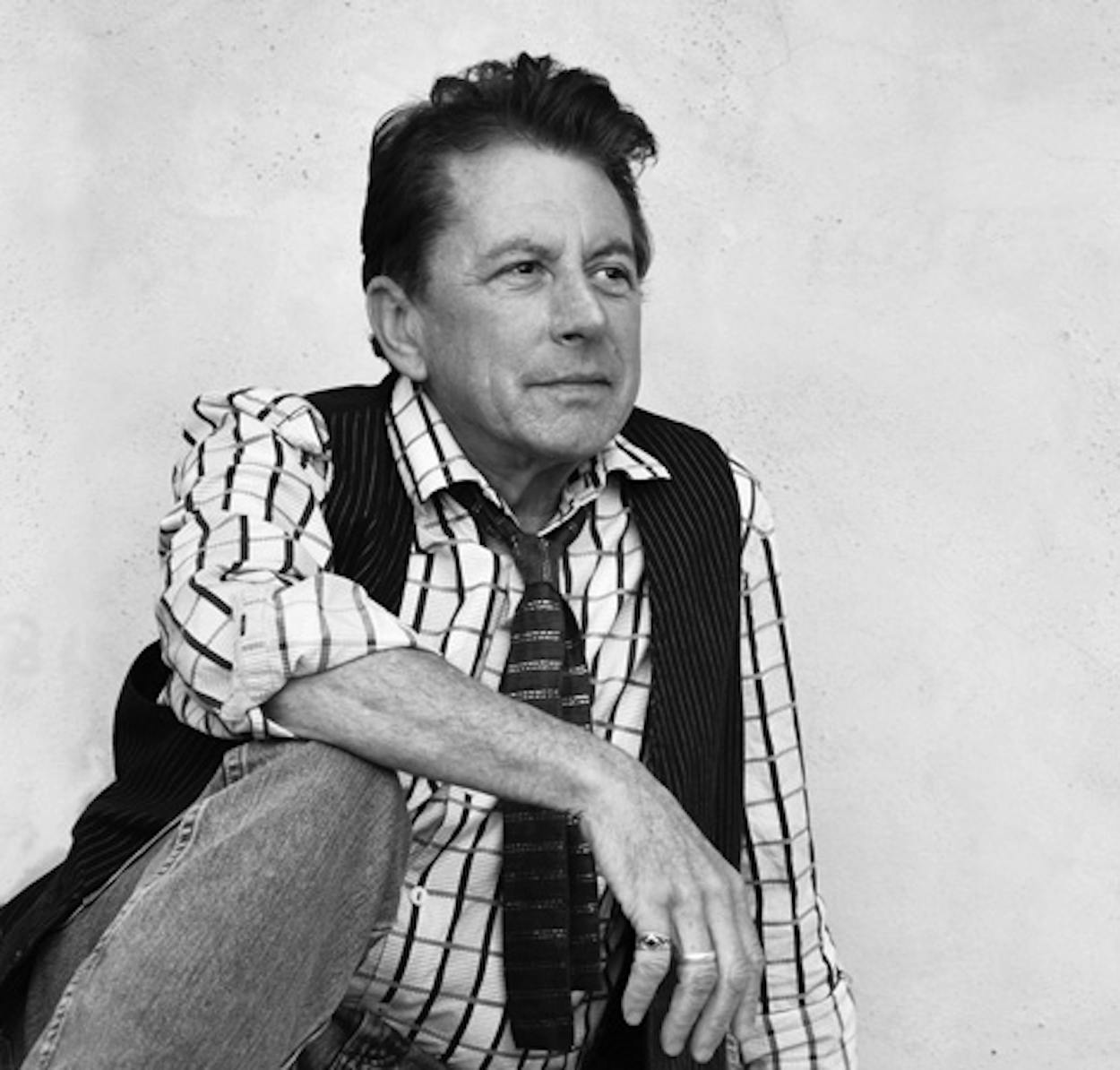It’s been forty years since a recording with his fellow Flatlanders Jimmie Dale Gilmore and Butch Hancock first put the Amarillo-born rocker on the map. After a busy period that included the publication of a collection of his tour journal entries and a new Flatlanders album, Ely has released the autobiographical Satisfied at Last (Rack ’Em).
You seem to have hit a good spot in your songwriting in the past few years.
It sometimes takes a while for certain aspects of your life to catch up with your writing. This particular time, I feel like everything is in sync.
You have your own studio now. That enables you to work in an entirely different fashion.
It used to be, I would gear up for a record, pull my hair out trying to write, and then go in and record it, not really knowing what it’s supposed to sound like. I have to work on things over and over to get them right. Now I can do it at my own pace.
When you sit down to write, do you feel an obligation to live up to your previous work?
I don’t write for an audience. I write for where I am at the time. There’s a song on the new record called “Mockingbird Hill” that came from an experience talking with this waitress in a truck stop. She had lived in the same area her whole life, and it was what she didn’t say that helped me write this song. I had to fill in a lot of blanks—you don’t really know someone else’s whole story, but you imagine what was left out.
This is your first album of new songs in four years. Did any of them come from your large backlog of material?
Only one song, “Not That Much Has Changed.” I started it seven to eight years ago and found it while listening to old stuff. It’s about looking back at something in the place where you grew up, but I brought it into the present day, with a soldier coming back from war. Even though the town hasn’t changed, inside he’s totally different.
It feels like a song you wouldn’t have written twenty years ago.
I wouldn’t have. There’s been a real change in the last ten years, just in the way that I approach writing, and a lot of it came from getting back with Butch and Jimmie and writing things from scratch together, which is something that I’ve never done with anyone in my whole life. Then going out and touring with Lyle Lovett and Guy Clark and John Hiatt, seeing where everybody comes from when they write a song, was a real eye-opener.
How did you approach this song?
Every time I start a new album I head up to West Texas and drive around—you know, drive on those old cotton roads and in the wide-open spaces—and every once in a while I’ll come across a place where I’ve spent some time. That song sprung up from seeing how some of those old towns seem exactly like they were—boarded up and everything—but you realize that you have changed. I’ve been around the world a few times, and I come back and see that and it’s like, “Oh, not much has gone on here.” But then I realize it’s only my perspective.
You’ve recorded some classic versions of Butch Hancock songs. Two appear on this album. What is it about his writing that appeals to you?
I just feel like I’ve lived them, even though they might have complicated situations and there’s a story inside of a story. “Circumstance”—I’ve always loved that song, and this is the first album that I’ve been able to find a place for it.
That song and Billy Joe Shaver’s “Live Forever” offer a thematic center, though you didn’t write either of them.
Yeah, I found them after I got started on the record, and it was like, “Wait a minute, these belong here.”
“Satisfied at Last” plays as the flip side to “Live Forever.” It deals with mortality and feels like a coda.
I really don’t know where that song came from. The song is not so much about how you’re finally satisfied, it’s more about a satisfaction at this moment. You might have had a rough time getting to this point, but at least right now, everything is just fine.







